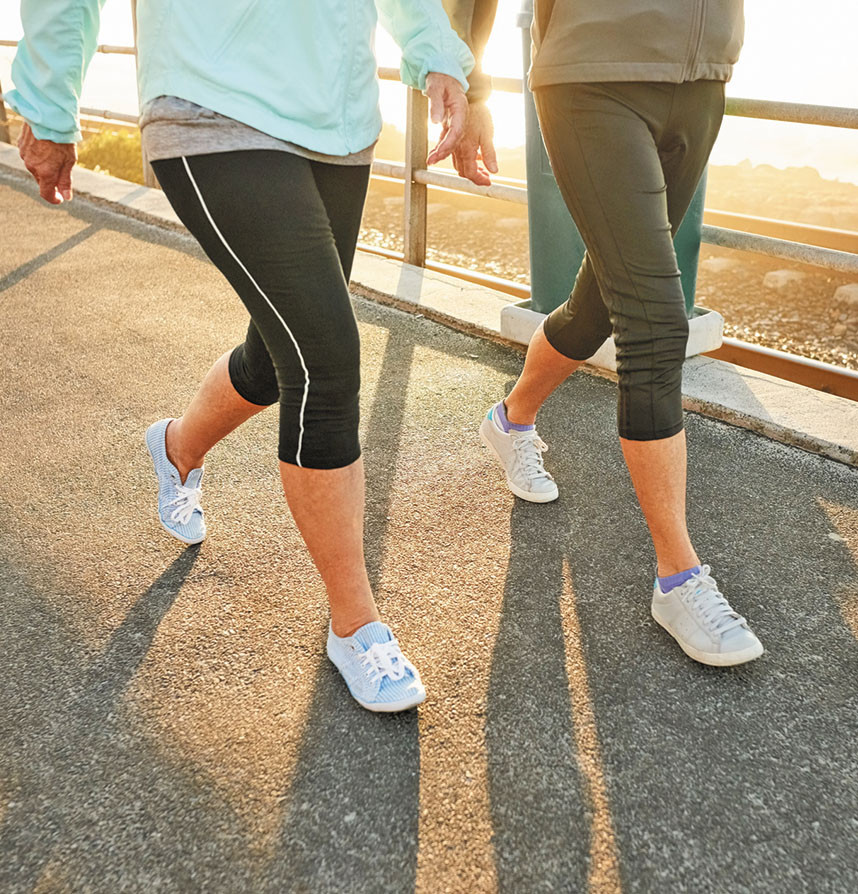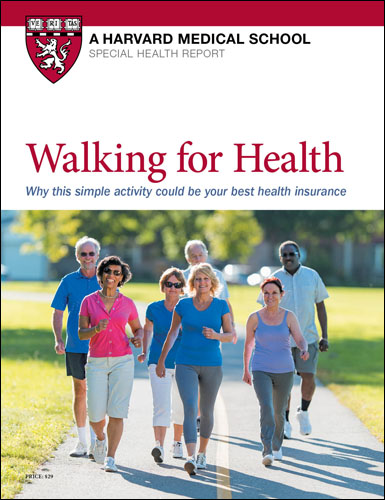Pick up the pace for better walking with peripheral artery disease
News briefs
 Walking is challenging when you have peripheral artery disease (PAD), narrowed arteries in the extremities. Even short distances can create leg pain and fatigue because your muscles can’t get sufficient oxygen to meet demand. Ironically, the best way to go further before symptoms stop you is to walk faster, according to a small, randomized trial published online April 6, 2021, by JAMA. Researchers randomly assigned about 300 people with PAD to a low-intensity walking program, a high-intensity walking program, or no specific walking instructions. All the exercisers walked five days per week, up to 50 minutes at a time; wore fitness trackers; and received weekly coaching calls. And all participants were tested at the start and end of the study to see how much ground they could cover in six minutes. After one year, the non-exercisers and the low-intensity walkers covered less ground in six minutes (about 50 and 21 fewer feet, respectively), compared with when they started the program. By contrast, the high-intensity walkers covered more ground (about 113 feet more) in six minutes, compared with when they started the program, even though they walked about half as long per week than the low-intensity walkers. Still, the researchers found any walking is better than no walking. Talk to your doctor about whether it makes sense for you to move faster.
Walking is challenging when you have peripheral artery disease (PAD), narrowed arteries in the extremities. Even short distances can create leg pain and fatigue because your muscles can’t get sufficient oxygen to meet demand. Ironically, the best way to go further before symptoms stop you is to walk faster, according to a small, randomized trial published online April 6, 2021, by JAMA. Researchers randomly assigned about 300 people with PAD to a low-intensity walking program, a high-intensity walking program, or no specific walking instructions. All the exercisers walked five days per week, up to 50 minutes at a time; wore fitness trackers; and received weekly coaching calls. And all participants were tested at the start and end of the study to see how much ground they could cover in six minutes. After one year, the non-exercisers and the low-intensity walkers covered less ground in six minutes (about 50 and 21 fewer feet, respectively), compared with when they started the program. By contrast, the high-intensity walkers covered more ground (about 113 feet more) in six minutes, compared with when they started the program, even though they walked about half as long per week than the low-intensity walkers. Still, the researchers found any walking is better than no walking. Talk to your doctor about whether it makes sense for you to move faster.
About the Author

Heidi Godman, Managing Director
Disclaimer:
As a service to our readers, Harvard Health Publishing provides access to our library of archived content. Please note the date of last review or update on all articles.
No content on this site, regardless of date, should ever be used as a substitute for direct medical advice from your doctor or other qualified clinician.













